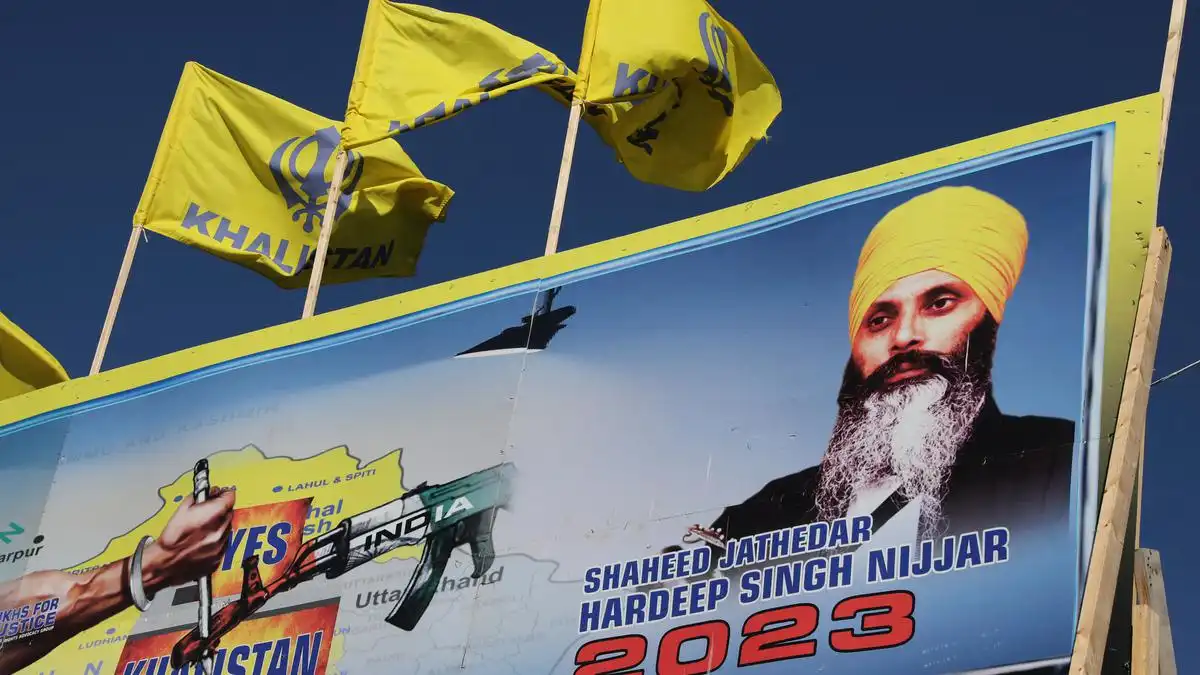It’s a tale that seems ripped straight from the pages of a gripping thriller, filled with international intrigue, political tension, and the pursuit of justice. On that fateful day, September 18, 2023, the world lost a man whose life and death would become a linchpin in the strained relationship between India and Canada.
A Mysterious Assassination
Hardeep Singh Nijjar, a prominent figure in the Sikh community, met his tragic end on June 18, 2023. He was brutally gunned down outside a Sikh cultural center in Surrey, British Columbia. The circumstances surrounding his death sent shockwaves across two nations and left a trail of questions that demanded answers.
Dueling Narratives
The narrative around Nijjar’s life was as complex as the geopolitical tension it stirred. To some, he was a valiant champion of human rights, tirelessly advocating for the cause of Sikh independence, often referred to as Khalistan. Sikh organizations held him in high esteem, praising his dedication to their cause.
However, for the Indian government, Nijjar was far from a hero. Instead, they labeled him a criminal, accusing him of being a terrorist mastermind. These contrasting narratives set the stage for a contentious battle over his legacy.

A Canadian Investigation
In the wake of Nijjar’s killing, Canadian Prime Minister Justin Trudeau wasted no time in addressing the issue. On September 18, 2023, he announced that his government was probing “credible allegations” suggesting that Indian government agents may have been involved in the assassination.
This revelation sent shockwaves through diplomatic channels, as it hinted at a potential covert operation on foreign soil. India vehemently denied any involvement, dismissing the allegations as absurd.
A Dual Identity
Nijjar, a man of many facets, was not solely defined by his advocacy for Khalistan. In addition to his activism, he ran a successful plumbing business and served as the president of a Sikh temple in suburban Vancouver. The banners that proudly displayed his image in support of the unofficial referendum on Khalistan were a testament to his commitment.
In a 2016 interview with the Vancouver Sun, Nijjar vehemently refuted allegations made by Indian media, which had accused him of leading a terrorist cell. “This is garbage—all the allegations,” he declared. “I am a hard worker. I own my own plumbing business.”
At that time, he claimed to be too preoccupied with his business to engage in diaspora politics. However, his involvement in the Khalistan movement was well-documented.
The Shadow of Accusations
Nijjar’s troubled relationship with the Indian government was not a recent development. In 2016, he was suspected of orchestrating a bombing in Punjab and training terrorists in a small city near Vancouver, allegations he vehemently denied.
In 2020, Indian authorities escalated their accusations, designating Nijjar as a terrorist and filing criminal charges against him. This move coincided with the farmer protests in India, which the government initially attempted to discredit by linking them to Sikh separatists. Nijjar was at the forefront of these accusations, further straining his relationship with his home country.
The Struggle for Sikh Independence
The roots of the Sikh independence movement can be traced back to the 1940s, evolving over the years into a full-fledged armed insurgency in the 1970s and 1980s. In 1984, then-Prime Minister Indira Gandhi ordered a raid on Sikhism’s holiest shrine, leading to a tragic confrontation that resulted in hundreds of casualties.
The aftermath of this event saw anti-Sikh riots across India, with members of the Sikh minority being targeted and killed. While the insurgency was eventually quelled through a severe crackdown, the desire for Sikh independence remained alive, both in northern India and among the Sikh diaspora.
A Complicated Relationship
The tension between India and Canada, exacerbated by the Sikh diaspora’s activism, has a long history. Canada boasts the largest Sikh population outside of India, making it a hotbed for political activism related to Sikh issues. In return, India has repeatedly accused Canada of harboring “terrorists and extremists.”
A Life Cut Short
On that fateful day, as Nijjar left the parking lot of the Sikh temple where he served as president, tragedy struck. He was shot multiple times and died on the scene. The news sent shockwaves through the Sikh community and beyond.
Gurpatwant Singh Pannun, a lawyer and spokesperson for Sikhs For Justice, claimed that Nijjar had been receiving threats due to his activism. Nijjar himself had reportedly confided in Pannun, sharing that Canadian intelligence had warned him of the danger he faced.
A Community in Mourning
In the aftermath of Nijjar’s murder, grief and anger reverberated through the Sikh community. Approximately 200 protesters from Canada’s Sikh community gathered in front of the Indian Consulate in Vancouver to demand justice. Many believed that Nijjar’s killing was a direct consequence of his calls for an independent Sikh state.
As the days passed, tributes poured in from all corners, and his legacy became a symbol of the resilience and determination of the Sikh community. Moninder Singh, a spokesperson for the British Columbia Sikh Gurdwara Council, emphasized how Nijjar’s death had deeply affected the community, not only in Canada but also in Punjab, India.
“The community is shattered,” said Sukh Dhaliwal, a member of Parliament representing Surrey, encapsulating the profound impact of Hardeep Singh Nijjar’s life and untimely death on the world stage.
In the shadowy realm of international politics, Nijjar’s story remains a compelling and enigmatic chapter—one that raises as many questions as it provides answers. The investigation into his murder continues, but the echoes of his life and the controversy that surrounded him will resonate for years to come.









